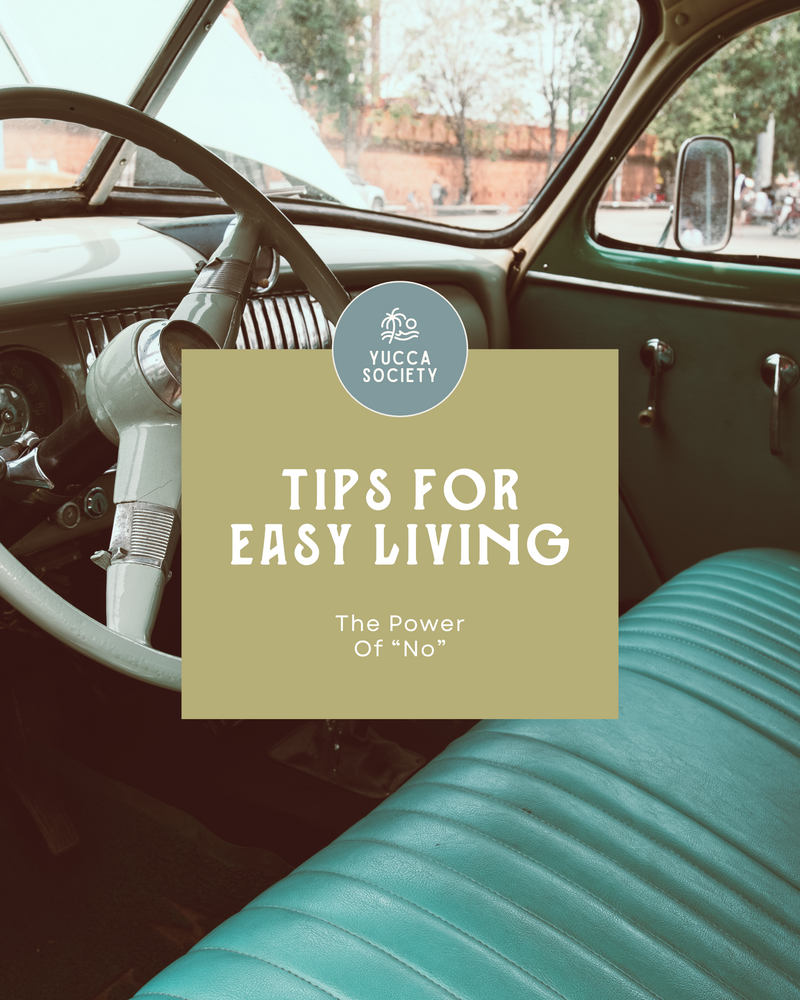
Tips for Easy Living: The Power of "No"
Saying yes can feel like the right thing to do. After all, helping people, staying busy, and showing up for others is what kind, loving people are supposed to do...right? Yes, but here’s the truth: constantly saying yes—without checking in with your own capacity—is one of the fastest ways I've found to run smack dab into burnout. Real self-care sometimes looks like setting boundaries...even with the people you love most.
This week, we’re exploring why saying no isn’t selfish—it’s an indication of a healthy person. Learning to pause before saying yes might be one of the healthiest things you do for yourself.
Helping others is a beautiful thing! It shows you love and care for the people in your life. It shows a level of empathy and investment. But what happens when saying yes starts to drain you, or you feel a sense of resentment? Have you ever said something like "I'm doing all this for you, and you don't help at all!". While it's ok to ask others for help, when you start to expect it or worse, demand it, it’s time to pause.
Consistently prioritizing others' needs and (this is important) ignoring your own can lead to compassion fatigue or burnout. This isn't simply agreeing to help someone...it's a prolonged pattern of ignoring how you feel because you either a) feel rude or mean choosing how you feel over how someone else feels or b) don't even recognize you have needs so ignoring them feels normal.
If you're a recovering people pleaser, acknowledging that you feel tired and need to go to bed when someone you love feels tired, or turning down plans to hang out with a friend who's going through a rough time, don't just feel wrong...it feels mean. Selfish. Unloving. Hateful. But is it? That's the real question.
Here's how I (Lauren) have come to see it after decades of saying yes when I wanted (or needed) to say no: boundaries allow me to be honest with others about my capacity so that I can have healthy, sustainable relationships where I am seen and known.
Truthfully, even if I wanted to, I can't do it all. I don't have unlimited time or resources. So when someone asks me if I can help, I need to take into account what I've already committed to, how I'm doing emotionally/physically/spiritually/mentally, etc. This allows my yes to be an honest one, and allows me to stay committed when in other cases, I may have backed out.
Saying no isn’t selfish—it’s what protects your well-being and allows you to show up as your best self for the people who matter most.
If your calendar feels overwhelming, consider whether a task on your to-do list could wait, or whether your family’s schedule could be simplified. Protecting your energy isn’t about opting out of life—it’s about making space for what truly matters.
0 comments